The power of positivity
In many of my workshops, I like to ask the participants about their superpowers. What do they think they are good at? What do they get complimented for?
Skills, abilities. Being a great cook, an awesome writer or a social media guru. 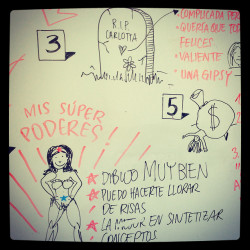
I just ask them to name three of them.
And I am always impressed to see how difficult it sounds to so many of them. How arrogant or self-indulgent it seems to be. How they don’t feel good enough or even perfect enough at anything to claim it as a superpower. How the inner judge is powerfully mining them down.
That is why I was really happy when I received as one of my early Christmas gifts the last book from French positive psychology new guru Florence Servan-Schreiber, centered on how to detect and embrace your own superpowers!

Because we’ve been brought up not to brag.
We have even been wired for negativity, cynicism and self-criticism.
Out of the four basic human emotions (joy, sadness, fear, anger), only one is actually positive.
Our species actually survived thanks to the ability to spot dangers and risks in our environment. And now we hardly find a middle way between self-esteem and self-deprecating.
Try for example to spend one full day without voicing or thinking anything negative about others or about yourself. Hard, right? It is crazy how this tendency lies deep within us. The good news is that you “only” need 21 (or 66, it depends) days to make it an habit, so why not give it a try?
This is the reason why, more than ever, we need to develop our “strengthspotting”, as Robert Biswas-Diener calls it. A few helpful questions for that:
- What have you achieved you are particularly proud of?
- What do you find exciting in your life right now?
- What are you looking forward to in the coming days?
Because positive psychology is actually “the science of happiness”.
One of its founders Martin Seligman explains in this talk how psychology has often been centered on treating the problems or the diseases but not so much focusing on keeping people sane and happy. So positive psychology is much more about prevention than treatment.
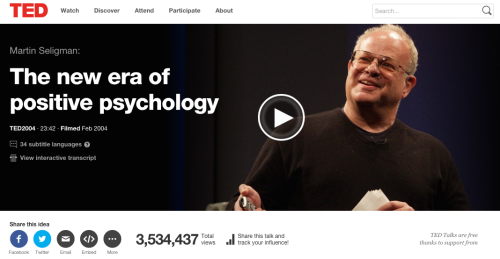
As defined by the Positive Psychology Center at the University of Pennsylvania, “Positive Psychology is the scientific study of the strengths and virtues that enable individuals and communities to thrive. The field is founded on the belief that people want to lead meaningful and fulfilling lives, to cultivate what is best within themselves, and to enhance their experiences of love, work, and play.”
So what did the investigators find out?
First, Seligman, Myers and Peterson, founders of positive psychology identified 24 character strengths in all the cultures. Anywhere in the world, from any culture or background, human beings share these common strengths in different levels.

So if you want to identify your top 5 ones, feel free to take the test!
My first one is love of learning!
Secondly and even more importantly, investigators found that the quality time that we spend with the people we love is one of the most accurate indicators of our well-being.
That is the result for example of this 75-year-old study on adult development, happiness comes essentially from good relationships.
Intimacy. Meaningful conversations. Deep and active listening.
And that is what I also tend to develop in my workshops.
I really love to foster one-on-one conversations between participants, drawing and exchanging about their life or career map, making them write their epitaph or what people would tell about them at their 80th birthday, or just looking at each other in the eyes for two minutes while describing what they see.
While holding the space and creating an atmosphere of trust, intimate stories and deep motivations can be shared.
Fully listening to each other. Dedicating total attention. Being completely present. Looking at each other for real. Smiling.
These seem like simple and obvious ingredients and yet I am always impressed by their power. How people feel happy and satisfied after a real conversation with their colleague, sometimes for the first time in years…
In some cases, I even use some mindfulness exercises from the Plum Village to restore communication between conflictive teams. Like these four steps of beginning anew:
- First sharing your appreciation for the other person.
- Then voicing regrets or apologies for the hurt we might have caused in the other.
- Expressing what has hurt us in the other person’s actions, speech or thoughts.
- And finally, asking for support regarding a difficulty we are currently experiencing.
The key of the exercise being to let the person talk freely without reacting and interrupting, as in a feedback session.
I also enjoy asking participants to draw their relationship map. Writing their own name in the center of a sheet of paper. Writing down the names of the important people in their life, family, partners, friends, colleagues,… around theirs. And drawing arrows from their name towards the others’ and backwards, adapting thickness or color of the line according to the depth of the relationship and the support provided. The result is usually pretty revealing…
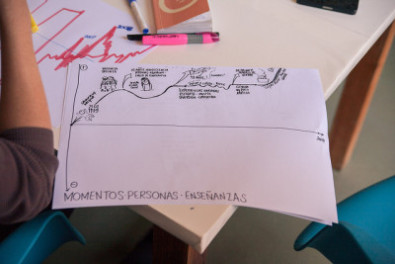
Another interesting exercise is the RBSE (Reflect Best Self Exercise) where you actually ask 10 or 20 people around you to tell you moments or circumstances in which they saw you thriving.
The psychologist Arthur Aron actually developed 36 questions which allow you to develop intimacy with a person you meet for the first time and it works!
An initiative exploring the possibility to develop emotional intelligence in all of us is actually The School of Life. In different cities allaround the world, clases are offered on how to mindmap your thoughts or to learn more about the imposteur síndrome. They also offer free videos on their Youtube channel about a vast array of topics, from suicide to confidence.
So, if the quality of our relationships actually conditions our satisfaction level about our life, we’d better start working on it right now!
And this is important not only in our personal life but in our professional one too. In this talk about the happiness advantage, Shawn Achor explains how happiness leads to success and not the other way round. Business outcomes actually improve when employees are positive in the present. Apparently they even have twice as many ideas!
And that is why positive psychology is making its way into companies now…
Because happier companies are actually better performing!
Last year in Le Havre, the Positive Economy Forum actually explored positive answers to the challenges faced by companies today and tomorrow.
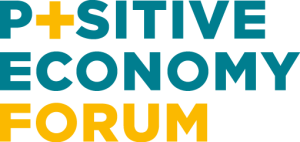
And the third and last magical ingredient is actually gratitude.
In her very nice talk at TEDxParis, Florence Servan-Schreiber developed the idea of the tremendous power of the gratitude which makes us feel happier, live longer and improves the quality of life around us!
And to make it very concrete, she recommends simple everyday exercises:
Like buying a nice notepad and writing down every night or sharing with your family your 3 “kifs” of the day, the coffee with a friend, the warm bath or the great meal you had that made you happy today. This simple everyday act helps you to see your life differently and rewire your brain towards positivity.

You can even organize a gratitude meal where you share your best 2015 moments with your friends!
Many love and kindness meditation practices are actually based on that idea: sending love to yourself first, then to a person you appreciate, a person you feel neutral about, a person you may not like that much and finally the universe as a whole is a powerful practice.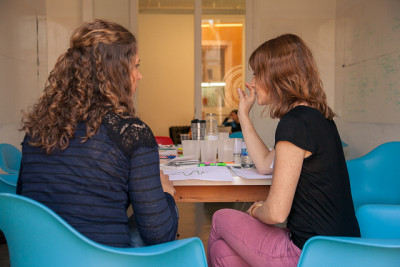
Finally, following the relationships map, feel free to pick a few people or colleagues around you and write them a gratitude letter or email, a few words about how you value their friendship and support. And if you feel like it, you can even read it to them. You would be surprised by the result!
So in our current world where our natural tendency might lead us to the fear of the other, let’s dedicate some time to get to know each other better and to spread some joy and positivity in the air!
Here is a pocket reflection worksheet from Holstee about your past year.
Wishing you a happy 2016!
Uncategorized
